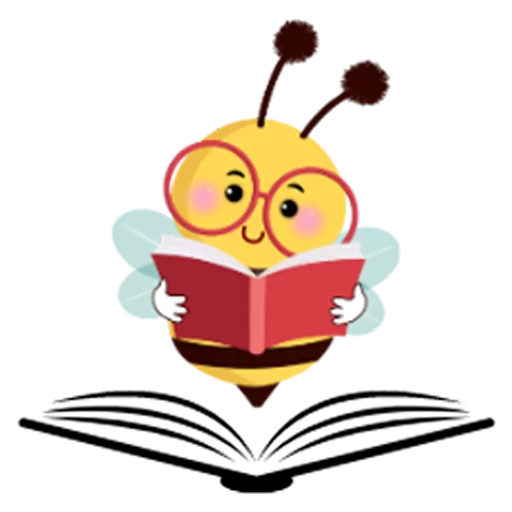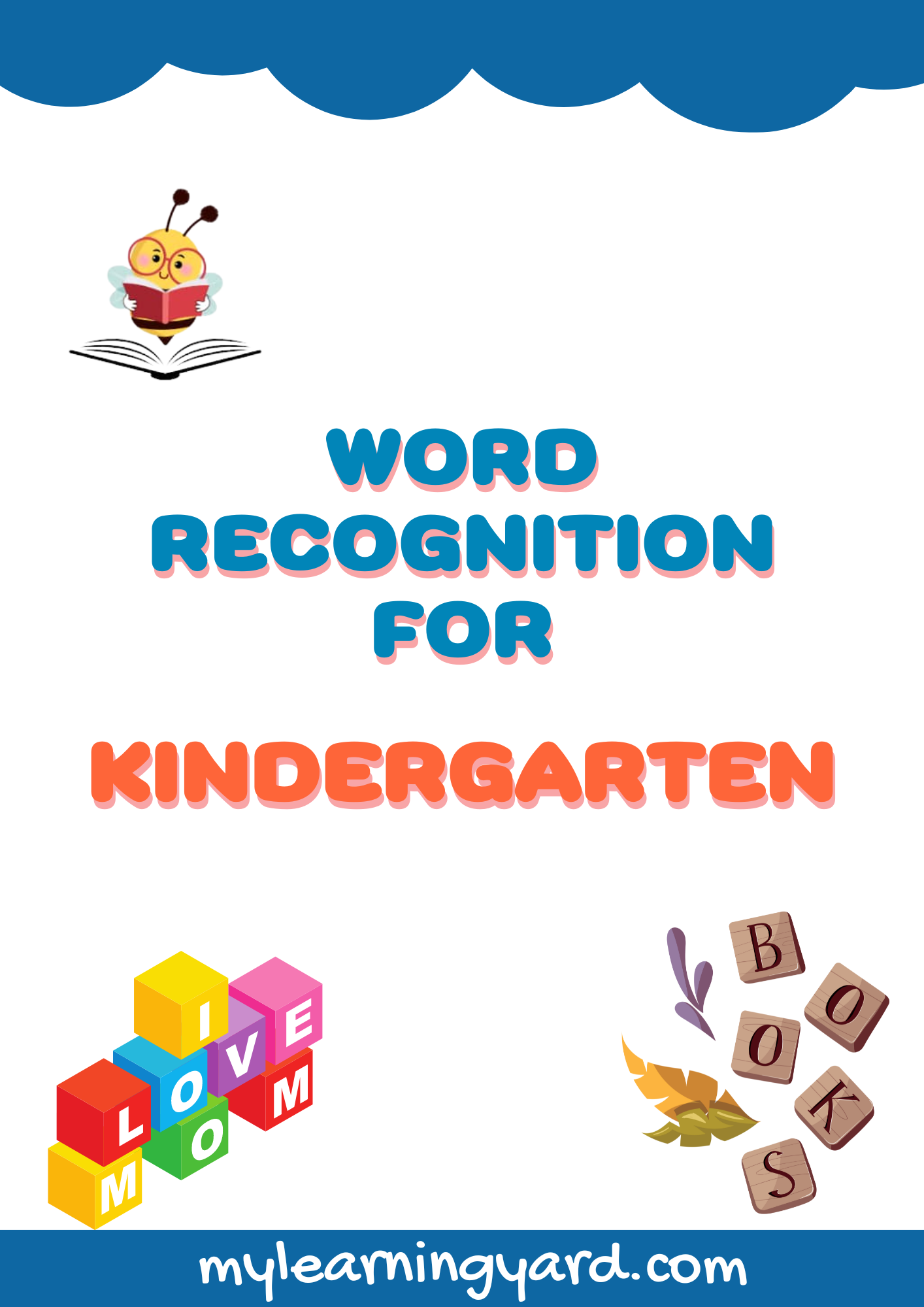Word recognition is the superpower that lets children understand letters, how they sound, and how those sounds build words. But why is it so important to focus on this kindergarten skill? In this article, we will explore the many benefits of teaching word recognition in kindergarten, setting them on the path to becoming confident and enthusiastic readers.
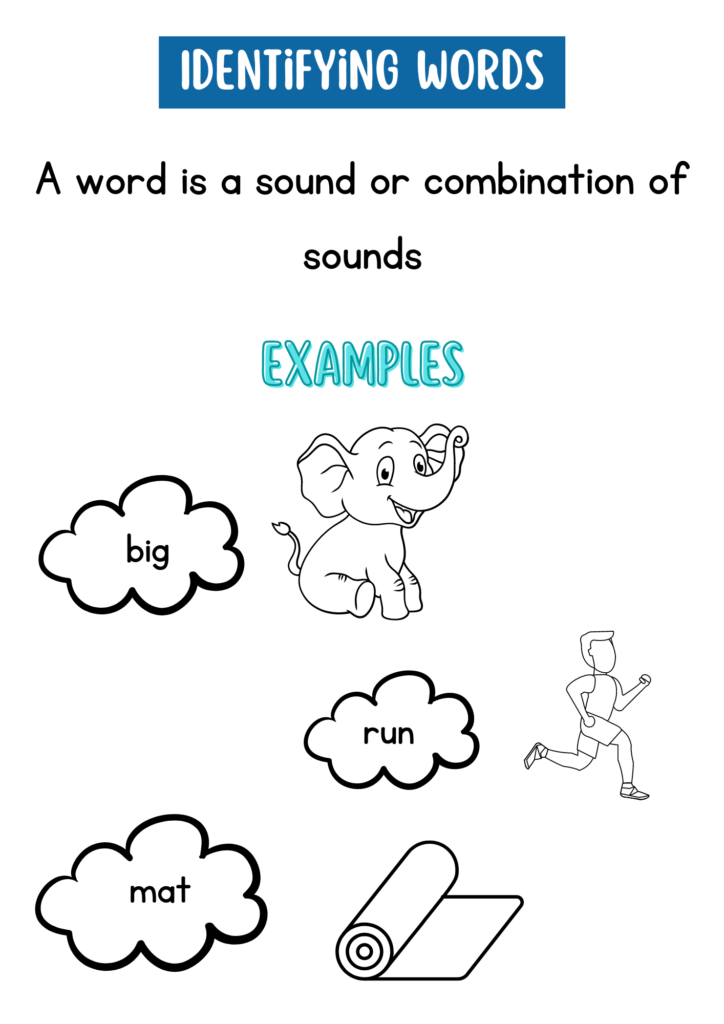
There are several critical benefits of teaching word recognition in kindergarten
Foundation for Reading
Children can begin to decode new words and unlock the world of written language by comprehending the connection between letters and sounds. When a child understands the connection between the letters “C”, “A”, and “T” and the sounds /k/, /ă/, and /t/, the learner can confidently read the word “cat”. By learning more sounds, they can sound out unfamiliar words.
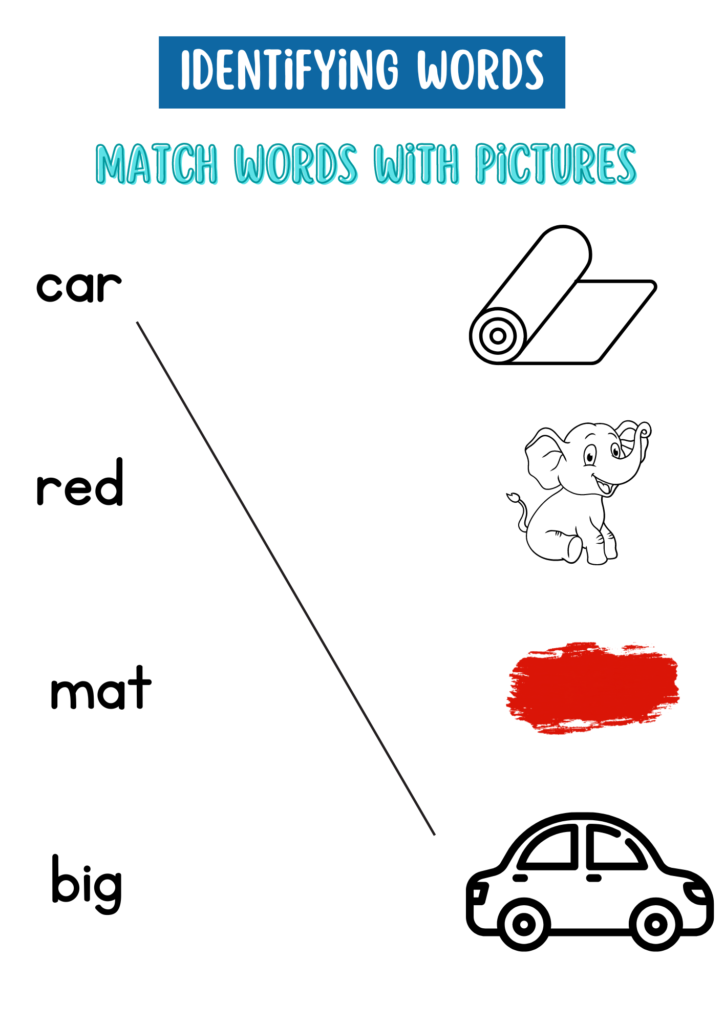
Vocabulary Building
As kids build on their sounds and recognize words, they learn more unfamiliar words (like ‘mat’ and ‘dog’), boosting communication and understanding!
Confidence Boost
Cracking the code of word recognition builds confidence. Kids who can sound out words (e.g., “dog”) feel ready to conquer new books, knowing they have the skills to tackle anything.
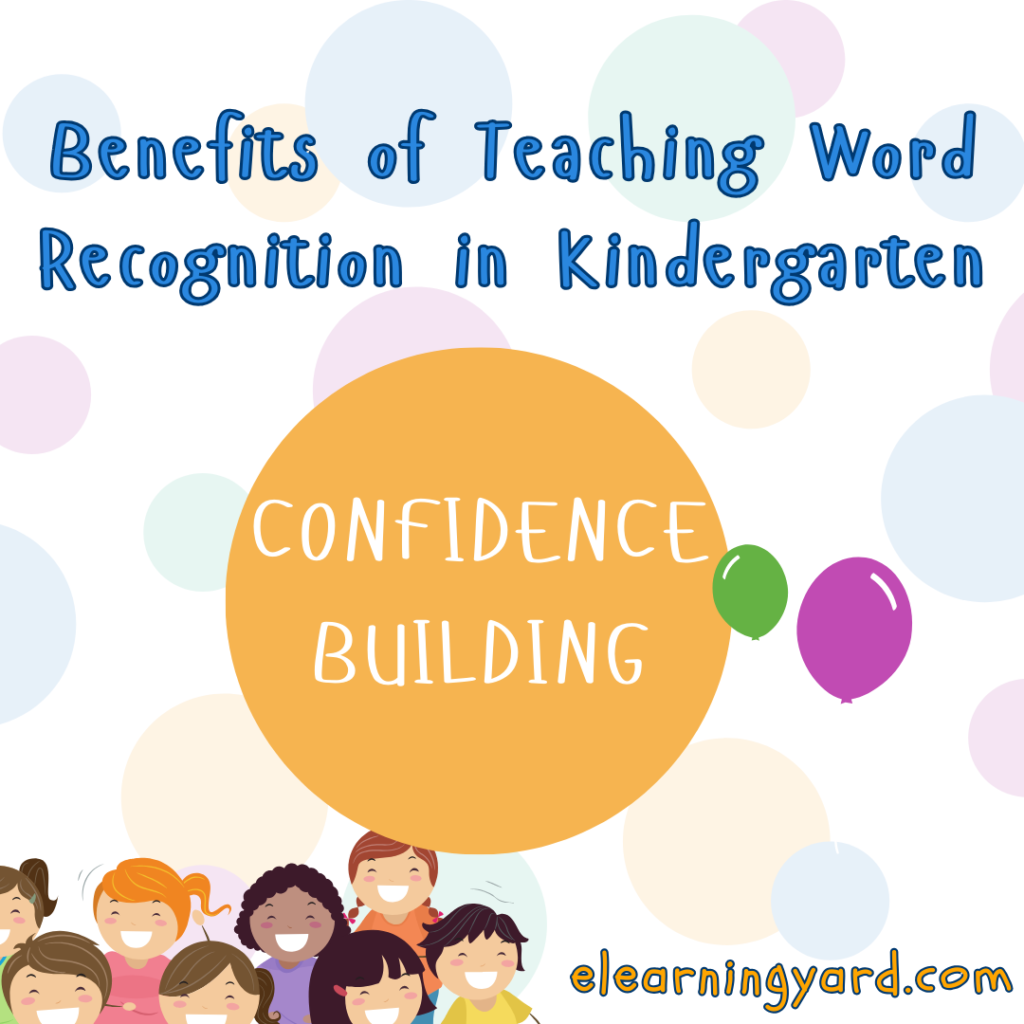
Brain Development:
Reading builds brain power. Recognizing words with different sounds (like /ch/ in “chick” and /sh/ in “shoe”) strengthens connections for language, memory, and seeing, setting the stage for future learning. Also, syllables are a powerful tool for introducing decoding in kindergarten after children have learned their vowel sounds. By breaking down words into syllable fragments, children can begin sounding out unfamiliar words, like—popcorn – which has two syllables.
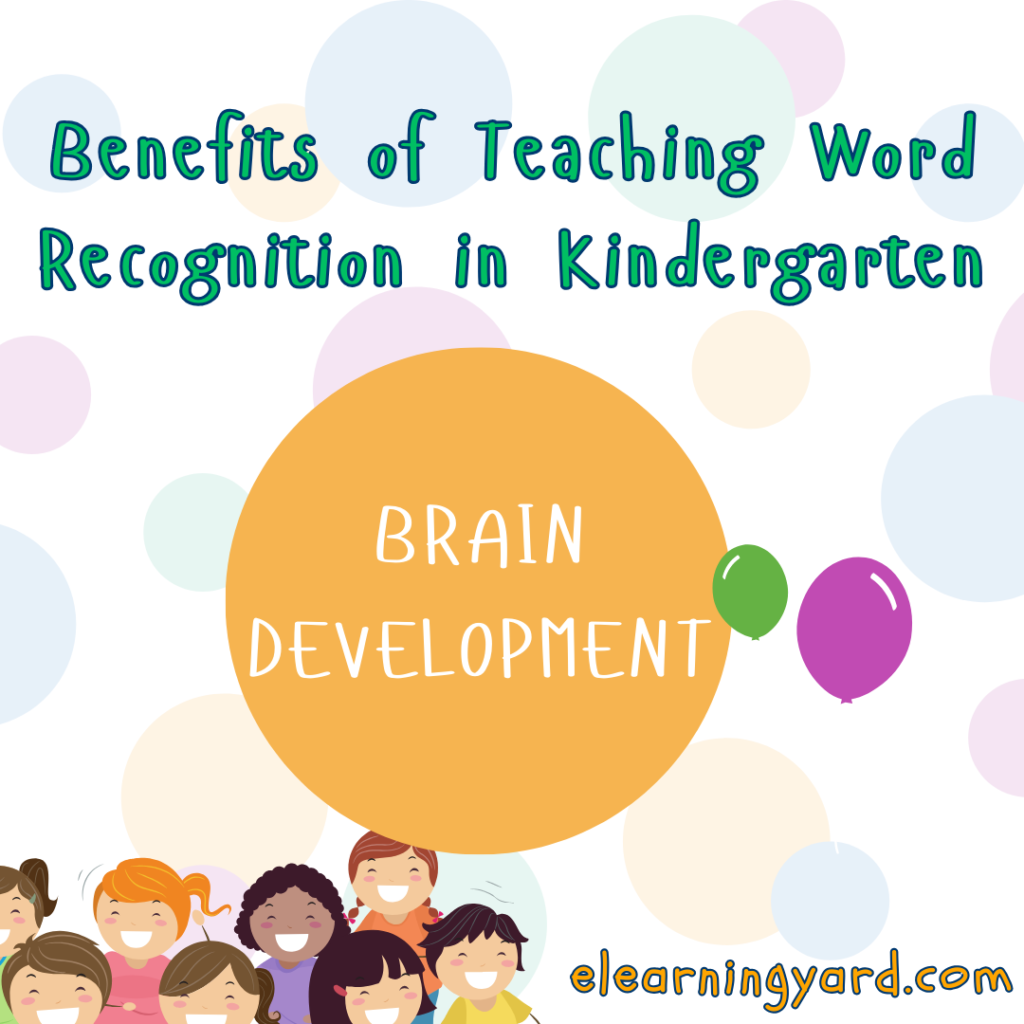
Sets the Stage for Success
Early success sets the stage! Kids with solid word recognition in kindergarten are ready to tackle tougher books in first grade. It fosters a lifelong love of reading!
Teaching word decoding in kindergarten is an investment in a child’s lifelong love of reading. It unlocks a world of confident, independent readers.
Nurture word recognition skills in your ward(s) with our Fun Word Recognition Worksheet. It’s the key to unlocking a world of reading, empowering young minds and setting the stage for lifelong learning.

